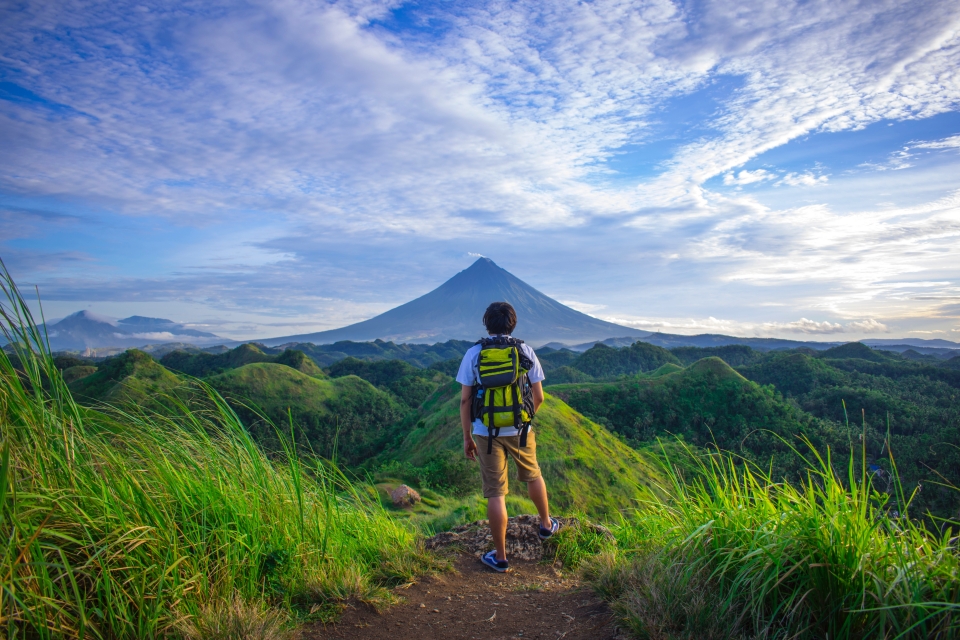
Quite possibly the first time this century, a whole generation is starting to influence the travel industry, looking for unique amenities and authentic experiences better suited to their personal wants and needs. As anyone born between 1981 and 1996 is considered to be a Millennial, this demographic is incredibly diverse and highly nuanced. However, they all have one thing in common – the desire to preserve the environment while seeking out experiential adventures, causing the travel industry to drastically change their method of operation.
Here are some of the most impactful ways Millennials are shaping the future of travel.
They make travel a priority
Having a stronger desire to see the world than older generations, Millennials tend to go on vacations several times a year, from shorter weekend trips to longer 7 to 10-day holidays. They also begin to travel as soon as they can, often in their teens or early twenties, instead of waiting on their retirement to check things off their bucket list. For this reason, they tend to be more frugal with their monthly income, regularly setting aside a certain sum of money specifically for travel expenses and new and unique experiences, as their desire to explore the world is seemingly their number one priority.
They are conscious of their miles
Being the generation that has sparked the global climate change conversation, Millennials are well aware of the environmental impact of airplane travel. For this reason, many of them opt for more eco-conscious air travel companies, flying only long-haul when actually necessary, instead of choosing air travel solely for the comfort and convenience. A smaller number of Millennials even forgo airplanes altogether, choosing a more sustainable transportation option that uses less fuel, such as trains, busses and electric cars, whenever possible.
They choose alternative accommodation options
Whether it’s their financial situation or the need for unique experiences, Millennials are more likely than any other generation to opt out of traditional accommodation options like hotels and resorts and choose hostels or online booking systems to find accommodation, particularly when going on popular backpacking vacations through Europe and road trips in Australia. Another popular option, especially when traveling to China, is to find a great studio rental in Hong Kong. Apart from the comfort and the homey feeling this type of accommodation gives them, it also allows Millennials to live like the locals, which is another incredibly important aspect of this generation’s travel experience.
They are more open to social media influence
Unlike any other generation that came before them, Millennials are significantly less likely to visit traditional travel agencies, look through brochures and visit tourist information centers. Instead, they mostly use their smartphones when searching for travel inspiration, looking at promotional pictures and videos, and actively comparing websites in order to find the best deals. Apart from turning to their friends and family when looking for information and recommendations, Millennials are also more open to accepting advice from travel bloggers and social media influencers, using their positive experiences as a source of inspiration when they are undecided on a specific travel destination.

They are part of the rise of digital nomadism
Due to a lack of reliable long-term employment options and an innate desire to explore the world, a growing number of Millennials are choosing the digital nomad lifestyle, also referred to as location-independent workers. Apart from allowing them to travel and experience different languages, cultures, and societies, this type of lifestyle also allows Millennials to provide for themselves while on the go, whether by working freelance jobs utilizing their computers or by searching for new and interesting career opportunities in foreign countries. As this generation also strongly advocates for having a good work-life balance, it’s no wonder digital nomadism is such a popular and inviting lifestyle among young Millennials.
They are popularizing eco-tourism
Apart from being mindful of their carbon footprint, choosing more sustainable transportation options and staying in accommodation owned by locals, Millennials are also more likely to buy organic, locally-made products, choosing to support ethical practices and smaller local businesses. What’s more, this generation often participates in eco-friendly and sustainable activities, such as using less plastic, creating less waste, picking up litter, and helping to clean up beaches, forests and bodies of water, as they tend to harbor a deep respect for the flora and the fauna of the local area. In order to achieve this and travel more consciously, Millennials are also more than willing to spend a heftier amount of money, as long as it means saving the planet.
All in all, it seems like the future of the travel industry is heavily influenced by Millennials, their growing concern for the state of our planet, as well as their desire to explore the world and experience something unique and authentic, traveling in a way many generations before them never could.
Written by Lilly Miller
About the Author
Lilly Miller is a Sydney-based graphic designer and a passionate writer. Loves everything about home decor, art history and baking. Shares home with two loving dogs and a gecko named Rodney.
You may also like
Best Camping Destinations in Queensland
5 Essentials for a Sustainable Camping Trip
Top 7 Tips for Eco-Friendly Travel
